Monkeys love bananas. Parrots love nuts. Dogs love chewing bones. And cats love chasing mice. Isn’t that how it works?
And if you are a proud cat parent of a free-roaming-kitty cat, then you’ve likely found a dead animal or two in your backyard or even in your house, at least once. Don’t worry, you are not alone; many cat owners have faced the horror of finding a dead mouse or a dead bird.
And just like you, many are left scratching their heads as to why their cats do this.
Keep reading to find out why cats bring you dead animals!
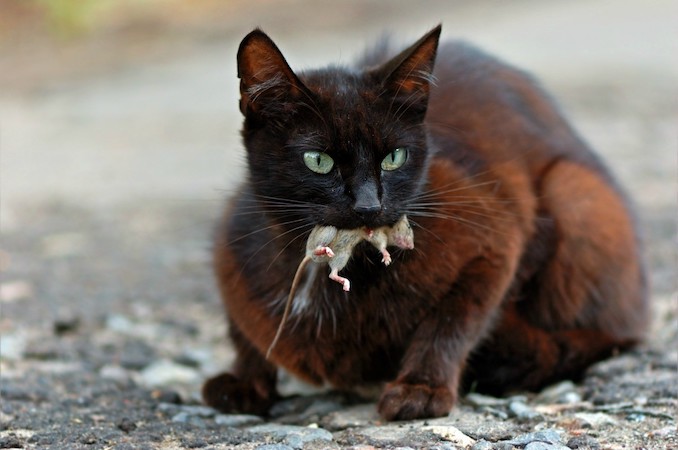
Why Does My Cat Brings Me Dead Animals?
A cat bringing you something is a nice gesture. But a dead animal? Can she not bring flowers instead?
According to nature.com[1], domestic cats in the United States alone account for killing between six and twenty-two billion small mammals annually. On the other hand, stray cats, as opposed to owned pets, cause the majority of this figure.
But, why do they do this? Well, cats are not mean or bad creatures. They do this based on several reasons.
Let’s discuss them in a little detail.
1. The Hunting Instinct
Cats are hunters by nature. Moreover, they have a reputation for being fearless and lethal predators.
Moreover, if you own a cat, you already know that cats have sharp teeth, needle-like claws, cushioned paws, night vision, and also the ability to sneak up on their prey without making any noise. Likewise, all of these inborn qualities are adaptations from years that allow them to efficiently capture their prey.
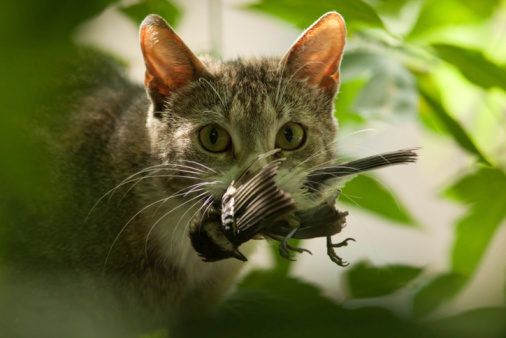
The big cats in the wild, especially the female cats, train their young ones by hunting prey and sharing the kill. In the same way, the house cats also have the same instinct as the big wild cats. And because of their predatory and carnivorous character, cats make excellent rat catchers in barns and other congested areas.
Another possible reason why your cat would want to bring a dead animal to you is that they want to share it with you. But that seems odd, doesn’t it?
However, many cats won’t eat their prey, but they will bring it to their owners to “share” with them.
Like I said before, the cats in the wild teach their young ones how to hunt and eat their food by bringing home dead or injured prey. And when the kittens are old enough, they will go out in the wild with their mother to learn how to hunt on their own.
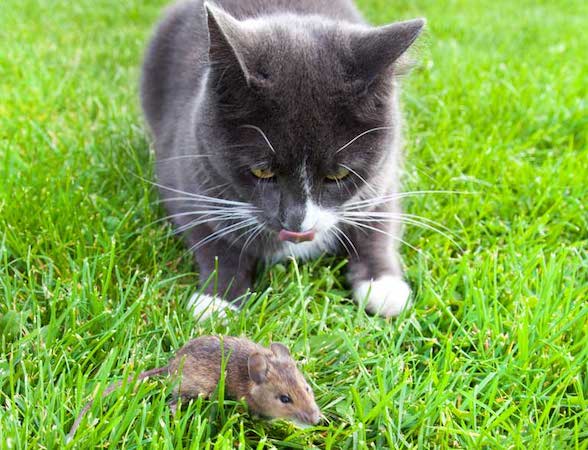
Similarly, domestic cats are no different. By bringing you a dead animal, your cat is acting out its natural role as a mother and a teacher. And you, a loving owner, represent her as a family. Your cat sees you as a rather inexperienced hunter, and she feels like sharing.
So, when your cat wants to share a gory gift, she will be obvious about it.
3. She Is Playing
Cats have evolved as predators. And felines retain the keen hunting instincts of their wild ancestors, and also the simple gut that enables them to digest raw meat.
But in the usual household, however, cats practicing their instinct may turn from a means of survival to that of playing behavior. You can agree to this statement if you have seen your cat bring toys to you, if not dead animals.
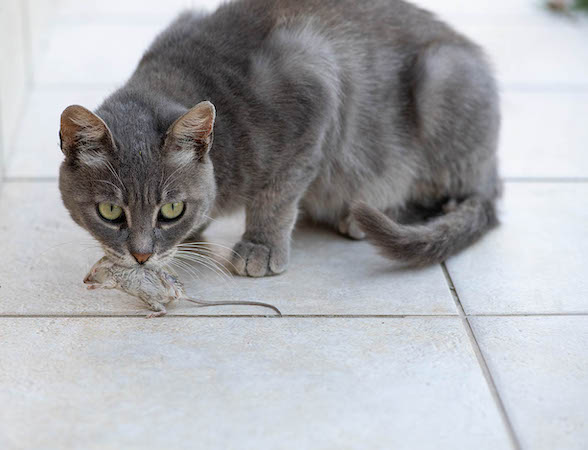
When she brings/share something with you, it often means that she is looking to play with you. Likewise, cats also associate your shared presence with their toys as an indication they will get you to play with them. And once they get used to this behavior, they might instigate play by bringing dead animals to you.
My Neighbor’s Cat Brings Me Dead Animals
Just like your home cat, your neighbor’s cat could also have the same motivation of bringing you dead animals. This could be especially true if you have some sort of relationship with the cat; if you feed your neighbor’s cat from time to time, she could be returning the favor as a kind gesture.
This could be because the cat might have recognized your inadequacy as a hunter and is trying to provide you with the necessary skills you need.
On the other hand, if you don’t know your neighbor’s but she is still bringing dead animals to your porch, then it is likely that the cat thought of your doorstep as a convenient place to put the animal down.
What Does It Mean When Your Cat Brings You Dead Animals?
Before you go crazy at your cat for bringing home dead animals, first understand what her behavior really means. This is all just based on the cat’s instincts. Cats are, first and foremost, natural-born hunters. You might have seen that cats love to laser points.
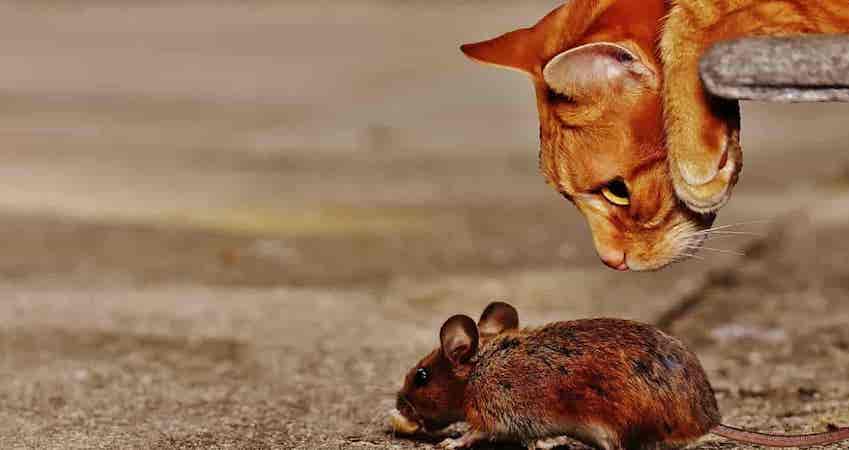
Though most of the cats are satisfied with chasing a laser pointer, some need to simulate “killing” their prey, such as a mouse. Cats are born to hunt. Although domesticated cats know that they don’t have to hunt their food to survive, they simply cannot resist the urge and enjoy the game of hunt and chase.
As mentioned in the reasons above, cats catching prey will bring their owners the dead animals — or, maybe even more nastily, sometimes the dead animals that are still alive — to showcase their prized catch for later consumption, or as a teaching guide, or as a gift.
But not every cat parent would appreciate this impolite behavior from their cold-blooded killer cat.
What to Do When Your Cat Brings You Dead Animals?
Luckily, there are some ways you can limit your cat from bringing home the poor dead animals. But first off, if your cat does bring you a dead animal like a dead mouse or a dead sparrow, you should avoid getting mad at your cat. Try not to respond in a negative way.
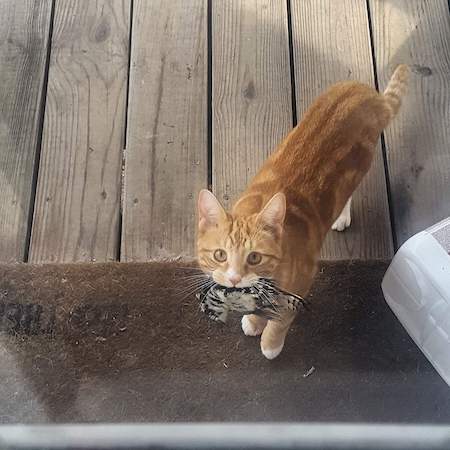
You cannot stop a cat from following her instincts; from eating food to using the litter tray, your cat’s behaviors are based on the highly evolved survival instincts.
However, you can still try to stop your cat from continuing such acts.
How to Stop Your Cat Bringing Dead Animals at Home
Since the desire to play the game of hunt and chase is so deep-rooted in cats, it is next to impossible to stop cats from such behaviors. However, there are some ways you can implement to indirectly reduce this sort of behavior in your cat.
Here are some tips on how to stop your cat from bringing you dead animals.
Keep The Birds Away
Keep the birds away from your cat. If you have a garden with a bird feeder, then make sure to place it higher and out of the way of your cat’s reach.
It should be high enough that your cat cannot jump directly into it.
Keep Your Cat Inside
If your cat cannot go out, then she can’t bring any dead animals back home. It’s as simple as that.
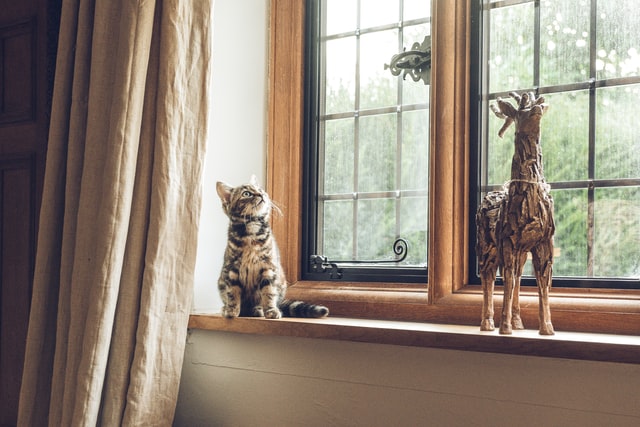
Moreover, it is believed that indoor-only cats tend to live longer than outdoor cats.
Make Your House Mice-Free
If your cat keeps killing and bringing you dead mice, then it is likely that your house is full of rats. Moreover, rats always run along the wall, so you can snap traps with the baited trigger end of the trap tight against the wall.
Provide Regular Playtime
Cats like to pounce on dead animals or even kill the animal. They react to sudden movements. And that is why cats prefer toys like feather wands, catnip-stuffed mice, and laser pointers.
For instance, interactive toys like fishing rods with fake birds or a mouse on the end of a piece of elastic, are particularly appealing to most cats. Doing this will redirect your cat’s prey behavior onto toys.
Give Your Cat a Bell Collar
If all else fails and your feline is still bringing a bloody mess at your footstep, then the best thing you can do is put a bell collar around your cat’s neck. Doing this might prevent your cat from killing animals, as the bell sound will alert the prey. Likewise, the sound can give mice, small birds, and other animals a chance to run away before the cat gets them.
And if your cat already wears a collar, you can simply attach a small bell. This can remove the cat’s one of the greatest skills — stealth. However, make sure that the collar is not too tight.
Final Thoughts
So, those were the three main reasons why cats bring you dead animals. Before you scold your cat for her gory-behavior, you should understand what it means when she brings you dead animals.
This behavior is mostly instinct-related, or maybe she is trying to teach you how to hunt, or she is just playing. So, next time your cat brings you a dead animal, do not become angry—though it is easy to do.
At last, this is essentially your cat’s way of telling you she loves and cares for you.
References
- Impact of free-ranging domestic cats — Nature

